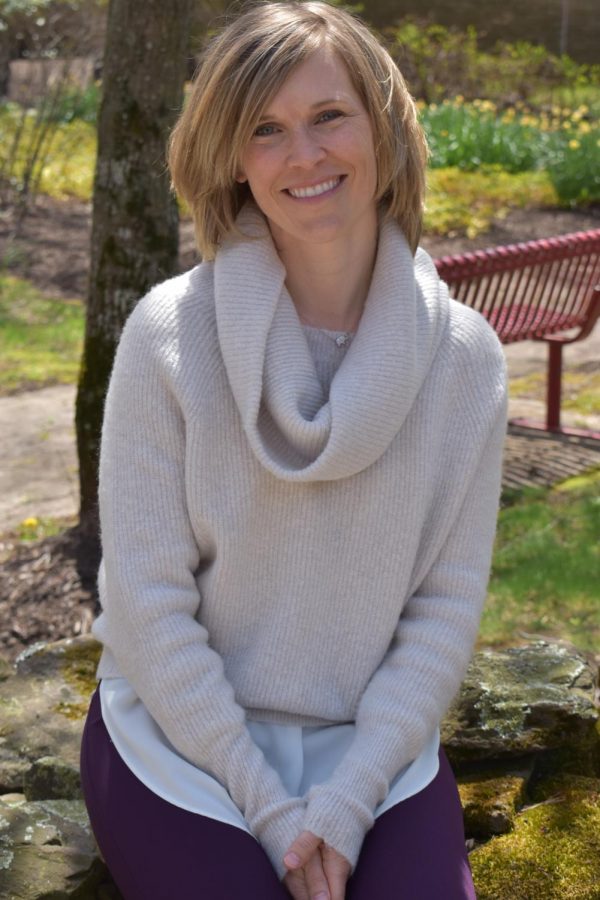Counselor, students discuss removing mental health stigma
AACC counselor Diane Hallila encourages students to explore their state of mind and to realize that “we’re not always in a perfect state of mind.”
May 10, 2021
The coordinator of AACC’s free counseling service told students in April that understanding the triggers that send them into depression or anxiety is a first step to getting those problems under control.
Diane Hallila, who spoke at a virtual event hosted by the campus chapter of honor society Phi Theta Kappa, recommended that students take the time to know and understand their strengths, what uplifts them, what triggers them and what holds them back.
“If you know those things … and don’t look at them as things to be ashamed of or things to avoid, then you[‘ll] have more power over them,” she said.
She added: “Ultimately, I think every single person can benefit by exploring mental illness and by exploring their own state of mind because we’re not always in a perfect state of mind. That would be very unrealistic to assume that.”
Phi Theta Kappa has hosted a series of mental health events this semester.
Hallila pointed to an October survey by the Hi, How Are You Project and American Campus Communities that showed 85% of 12,188 mostly college respondents reported heightened stress levels because of the pandemic. In addition, according to the survey, 52% reported worrying about exposure to the COVID-19 virus and 66% said the pandemic forced them to closer examine and address their mental health.
Eric Pollock, a second-year addictions counseling student, told the group that students need to remove the stigma around mental health problems.
“I think now more than ever, mental health, that we need to remove the stigma surrounding it, and be there for one another, more than anything else,” he said. “That’s why I always tell people you’re never alone.”
Pollack, who returned to college after a 20-year hiatus from taking classes at AACC, said he suffers from mental health challenges and hopes to start a new career helping others.
“It hurts me,” he said, “because I’ve been down that road where you feel like there’s nothing there. And it’s a really dark place.”
Hallila echoed the damage that stigma and labeling can do to a student who suffers from depression or anxiety, and pointed to celebrities who are opening up about their struggles.
“It always amazes me how many people are struggling with mental illnesses, people that we see in the limelight all the time, and … you just don’t realize the impact that they have,” she said. I love it when I see people in the limelight, standing up and having a voice and sharing their stories because it does … destigmatize those who are struggling.”
Julie Cipriani, a second-year cybersecurity student who attended the event, said she started struggling with mental health issues in the seventh grade. She said she wishes she knew about the resources at college when she attended for the first time years ago.
“When I was going to college the first time, I didn’t realize how many resources were available to me,” Cipriani explained. “And it’s something I wish that I took advantage of back then, because I was really struggling then.”
AACC offers free counseling services to students.
Hallila noted that “four of five college students who do die by suicide never had contact with counseling services and that’s why it’s so important to know that we’re here and we’re here to help.”
She added: “Our sole reason is to sit and talk with students to help them get through whatever personal challenges might be getting in the way of their happiness, so take advantage of those services.”
Students can contact counseling services to schedule an appointment through email at counseling@aacc.edu and phone at 410-777-7111.













Harold A Maio • May 10, 2021 at 4:38 PM
So long as we continue to teach one another “there is” a stigma to mental illnesses we will continue to reap the harm that results.
So long as we continue to accept the teaching, “there is” a stigma to mental illnesses, we will continue to reap the harm that results.
Harold A Maio